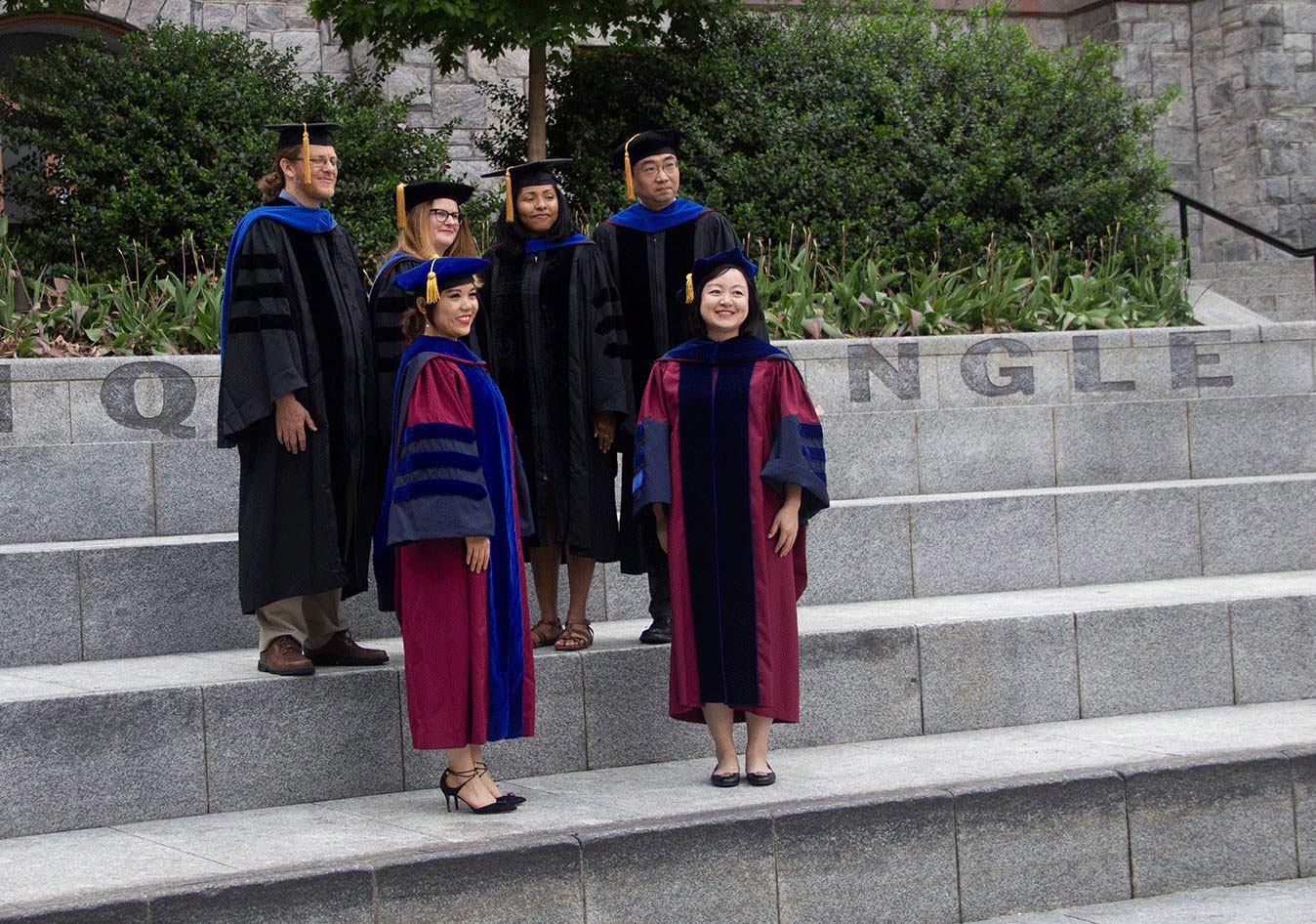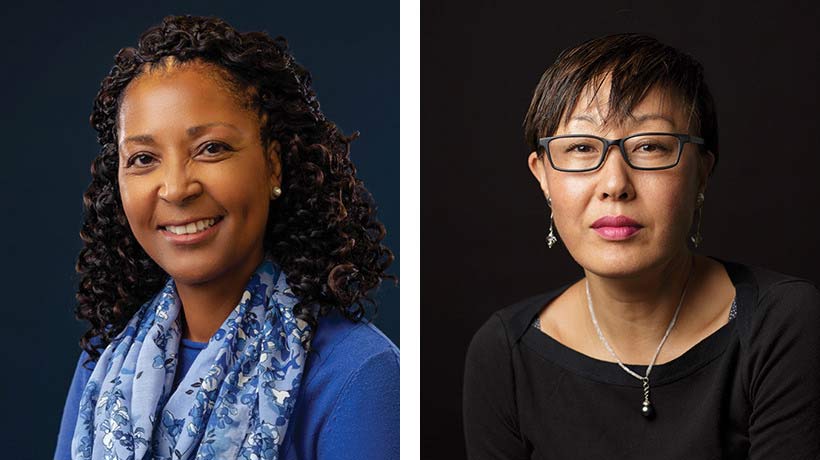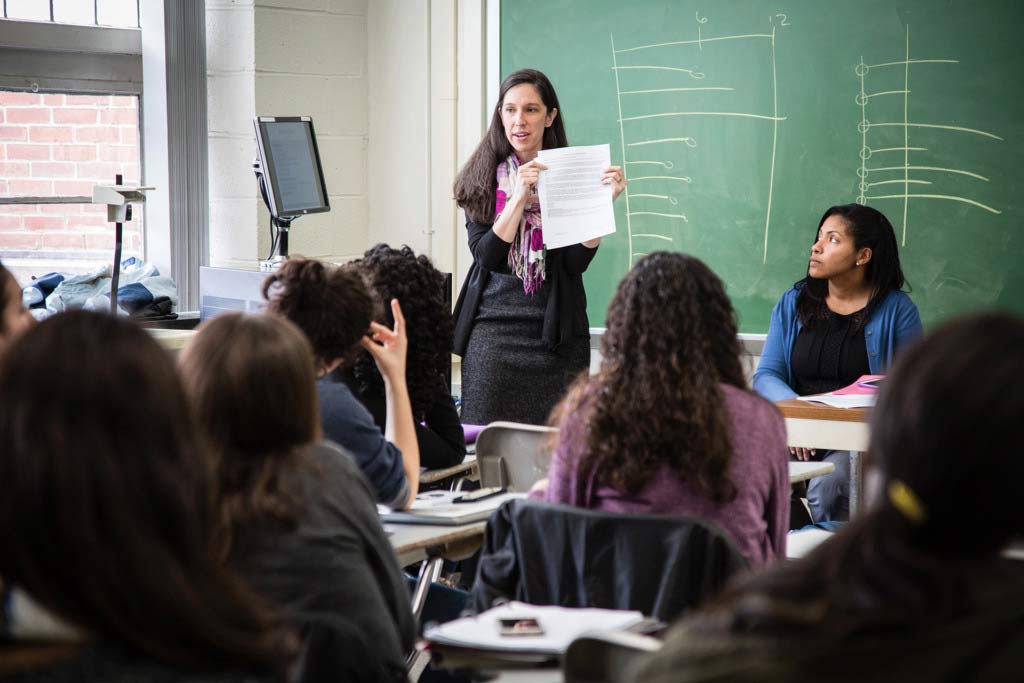

Bring your intellect, curiosity, and creativity to tackling complex social challenges.
The Doctor of Philosophy in Social Welfare (PhD) Program will transform you into a scholar well-equipped to identify and solve social problems – both close to home and around the world. Grounded in innovation and academic rigor, the SP2 PhD allows you to explore diverse perspectives and approaches to social work, social welfare research, social policy, social theory, and social justice.
Learn more about the PhD program and the SP2 experience.
Ready to experience SP2? Learn more about the application process.
Join us for an upcoming in-person or virtual event.

“Social welfare” is a complex term. Its basic definition is deceptively simple—the collective welfare or wellbeing of a given society. But what constitutes that wellbeing and how it can and should be achieved, who belongs in that society and can and should form and formulate the “social,” are abiding questions that have been posed, debated, and contested for as long as collective human settlements have been in existence. World-shaping works of art, science, and philosophy have been crafted to answer these questions. Disagreements on those answers are at the heart of the social, cultural, and political tumult in which the U.S. is embroiled. Social welfare is, in other words, a weighty, vital, and pressing field of study.
The social welfare field draws from all social science disciplines and the discourses of multiple professions including social work. Whatever the domain of interest—health, poverty, education, incarceration, climate change, racism, migration, philanthropy, homelessness, history, and whether it is framed as a theoretical, methodological, issue-focused, or population-based inquiry—what we seek is students interested in not only finding the answers but in critically interrogating the questions themselves. Given the school’s commitment to advancing social justice in all of its programs, the courses of study students engage in should, no matter the specific domain, actively attend to issues of power, inequality, and disparity.
We believe that the vitality of the social welfare field is maintained by the passion for social justice brought by those who enter it. SP2’s rigorous yet flexible curriculum aims to provide the training necessary to forge the students’ passion into disciplined scholarship. To encourage each student to develop unique work and an individual scholarly voice, the program is intentionally interdisciplinary, designed to expose students to an array of approaches to social welfare offered by the world-class faculty of the school and the university.
The PhD in Social Welfare prepares students for careers as outstanding researchers and scholars committed to critically and rigorously analyzing social problems to propose effective, research-based solutions, to offer new theories and methods for approaching research and scholarship, and to formulate new paradigms for social welfare. We welcome your questions about the program and the school. We invite you to join us in this endeavor.
Yoosun Park, MSW, PhD
Co-Director, PhD in Social Welfare Program
Tamara J. Cadet, PhD, LICSW, MPH
Co-Director, PhD in Social Welfare Program
“ Whatever the domain of interest—health, poverty, education, incarceration, climate change, racism, migration, philanthropy, homelessness, history, and whether it is framed as a theoretical, methodological, issue-focused, or population-based inquiry—what we seek is students interested in not only finding the answers but in critically interrogating the questions themselves.”
A highly selective program for students with a proven record of academic excellence and strong potential to contribute to their field
Instruction and mentoring from world-class faculty researchers and practitioners in multiple disciplines
Four years of support in the form of tuition, fees, individual health insurance, and stipend
INVISIBLE – leave blank
Access to Penn’s vast institutional resources
A diverse global alumni network in academia and industry, government, nonprofits, think tanks, and research institutes

The PhD program faculty are here to help you shape your specific area of expertise, drawing on their own decades of scholarship, teaching, and experience in areas including mental health, queer studies, sex work, homelessness, incarceration, gerontology, foster youth, and more.
Coursework provides students with core knowledge and skills as well as the opportunity to develop a specific expertise area. Papers and projects in core courses, combined with strategically selected electives, ensure a broad understanding of the field as well as deep study in the theoretical and empirical aspects of a specific area.
Students work with their academic advisors to develop an individualized plan for five electives. Graduate-level electives can be taken in any Penn department. At least one of these electives must be an advanced methods course, such as advanced statistical methods or qualitative research methodology.
Courses may be offered in varying order and year of program. Students are notified of such arrangements well in advance.
*Subject to change.
First Year
Fall Semester
Spring Semester
Second Year
Fall Semester
Spring Semester
Third & Fourth Years
Fall & Spring Semesters